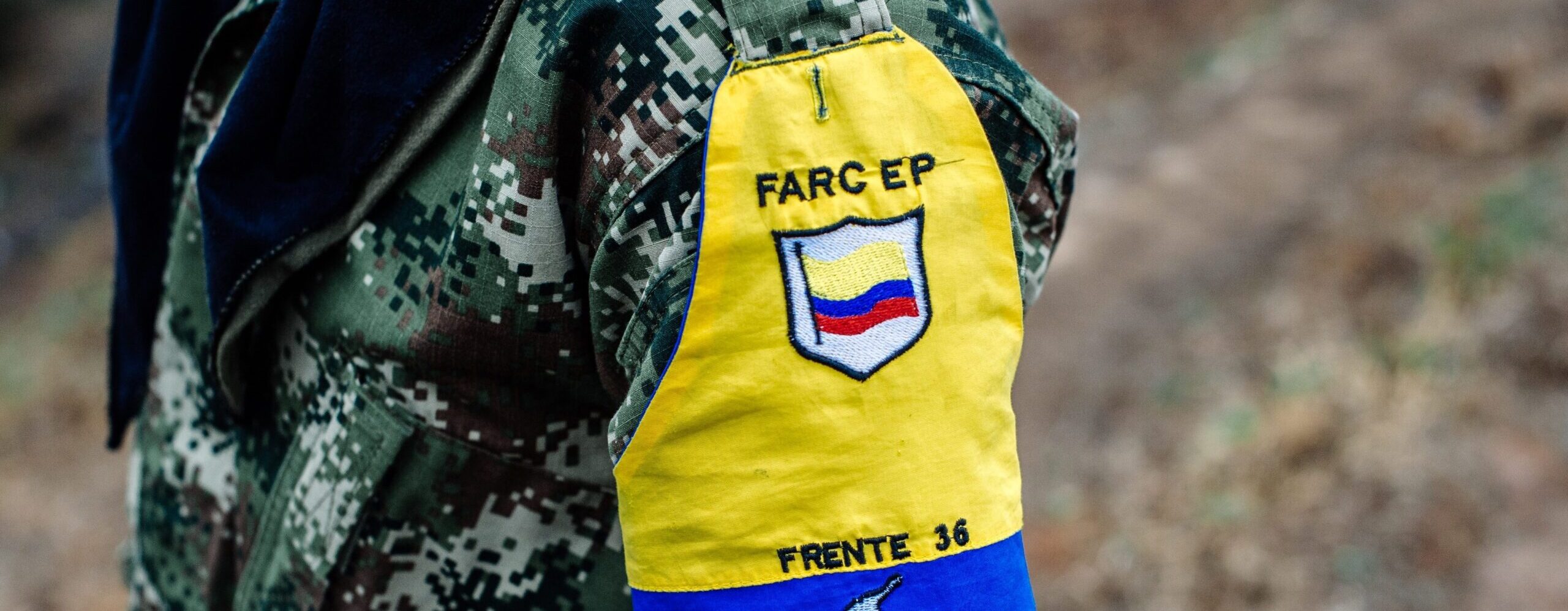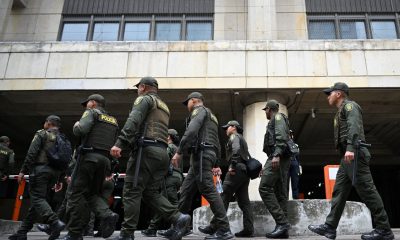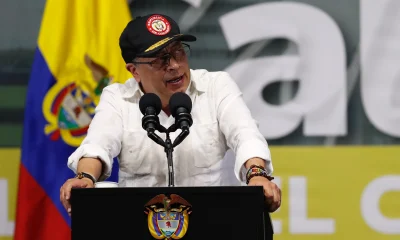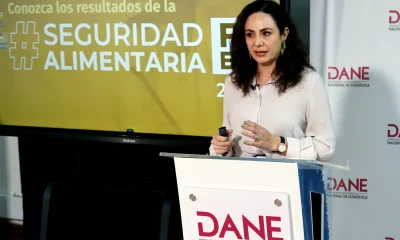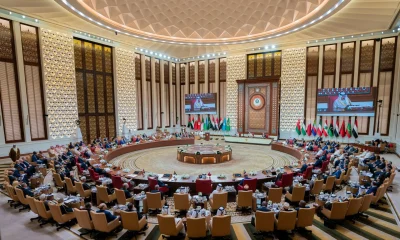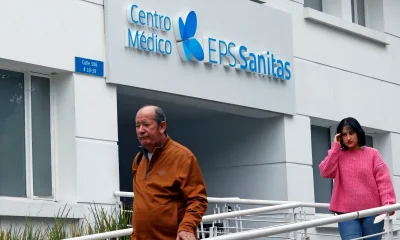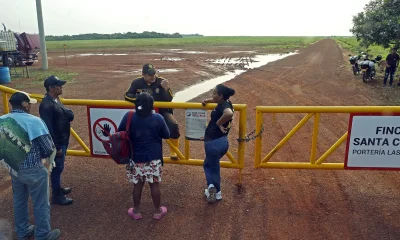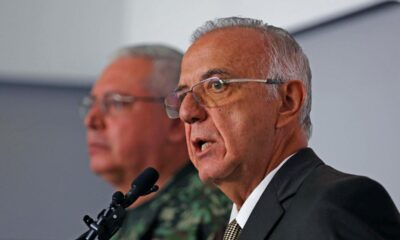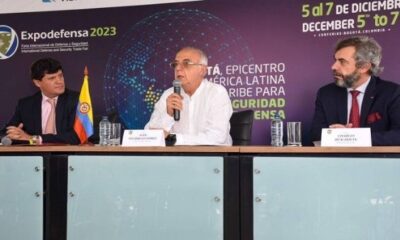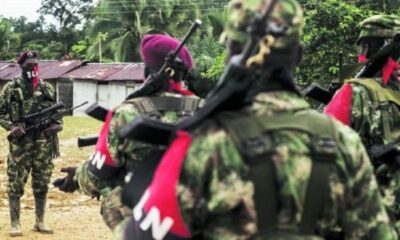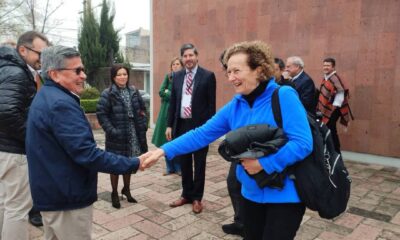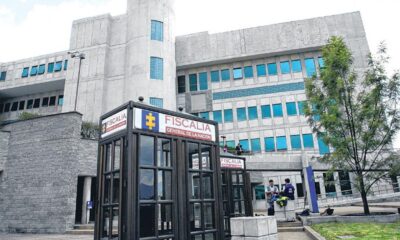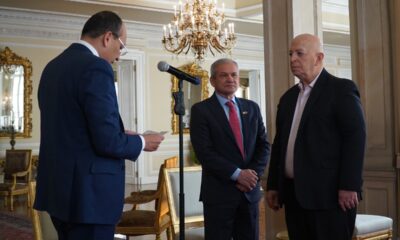International
Colombia and FARC dissidents agree on ceasefire protocol
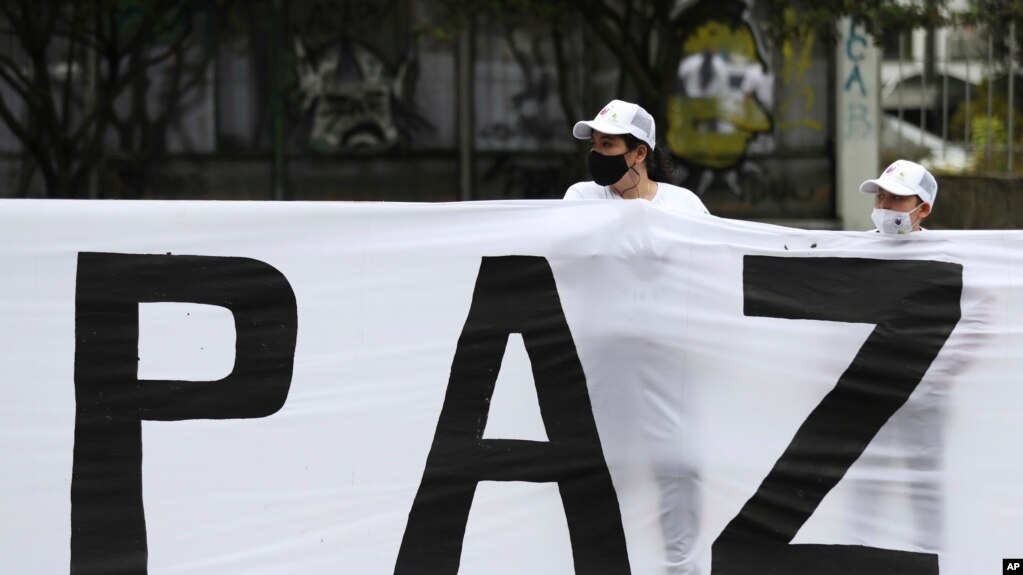
February 9th |
The Colombian government announced on Wednesday that it had achieved a protocol that will make it possible to verify the ceasefire agreed with a faction of the dissidents of the extinct Revolutionary Armed Forces of Colombia (FARC-EP), which did not adhere to the peace agreement signed by the guerrillas and the state in 2016.
The protocol was an essential missing element in the bilateral ceasefire with the self-styled FARC-EP Central General Staff dissidents, which went into effect from January 1 until June 30, 2023, according to the Colombian government.
The government also agreed to a bilateral ceasefire with the Segunda Marquetalia – another faction of FARC dissidents -, the Autodefensas de la Sierra Nevada and the Clan del Golfo cartel, however, the protocols that will apply to these armed groups have not been disclosed.
In a communiqué, the government detailed that the protocol with the FARC-EP Central General Staff “prohibits the transit or permanence” of the illegal armed group in the head towns of the municipalities, rural areas and primary roads to avoid “any affectation to the life and physical integrity of the civilian population”.
In the urban areas of several municipalities of the country, the presence of groups of armed men dressed in camouflaged suits has been registered in the last year, walking through the streets intimidating the population and without being immediately stopped by the public forces. The last of these happened a week ago in Yarumal, in the northwest of the country, where armed men entered a school and interacted with the children.
The ceasefire verification and monitoring mechanism will include delegates from the Ministry of Defense, the Office of the High Commissioner for Peace and an international component, which was not detailed by the government. It will also be accompanied by members of civil society, the Catholic Church and other religious communities.
This mechanism, the government explained, will issue technical concepts and elaborate recommendations to prevent and address possible incidents or non-compliance.
“The Public Force will continue to exercise its national security and defense obligations,” the official communiqué stressed.
The bilateral ceasefires are part of a strategy of President Gustavo Petro – the first leftist in the country and a guerrilla militant in his youth – to achieve “total peace”, which in practice consists of rapprochements and peace talks with multiple armed groups operating in the country and maintaining confrontations.
The state Ombudsman’s Office documented in a recent report that between January 1 and 20 several illegal groups carried out armed actions in the framework of the ceasefire, including harassment against police stations and the kidnapping of several soldiers, who were later released.
Petro said on Wednesday from Yarumal, at the end of a security council, that ceasefires in Colombia could not consist only in the suspension of hostilities between two armies, given that although statistics have shown in recent weeks a decrease in the number of wounded and dead, other crimes such as extortion, drug trafficking and smuggling may be on the rise.
For the president, the ceasefire must include an end to hostility against the civilian population so that there are no massacres, murders of human rights defenders, displacements, confinements or anti-personnel mines.
International
Colombia to Send High-Level Delegation to Ecuador to Ease Trade Tensions
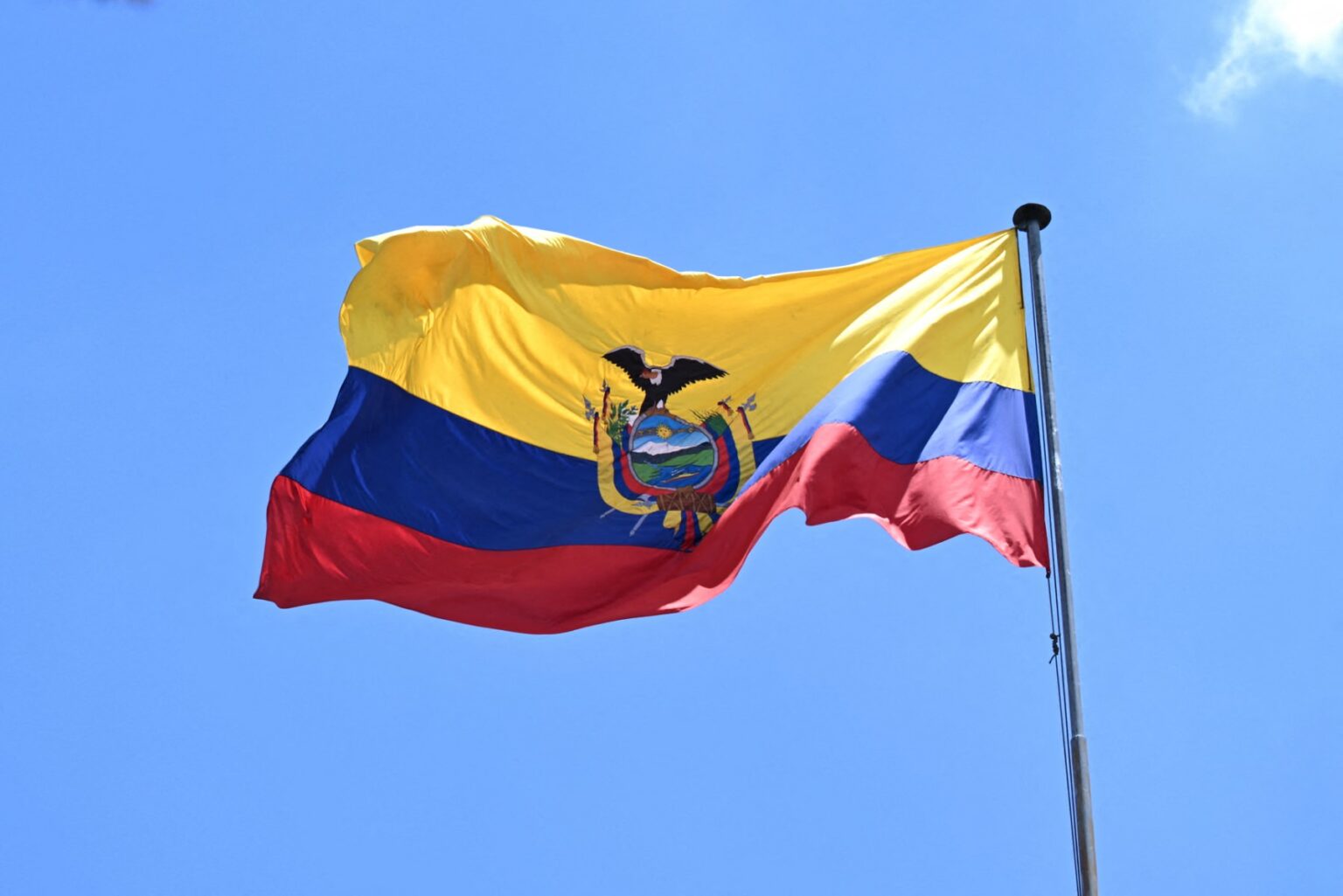
Colombia’s Ministry of Foreign Affairs confirmed on Friday that, at the instruction of President Gustavo Petro, a high-level delegation will travel to Ecuador in an effort to normalize bilateral relations, which have deteriorated following the imposition of reciprocal tariffs.
“In line with Colombia’s policy of good neighborliness and the spirit of cooperation and integration that guides its foreign policy,” the Foreign Ministry said in a statement, adding that the delegation will be led by Foreign Minister Rosa Villavicencio and Defense Minister Pedro Sánchez.
“Following instructions from the Presidency of the Republic, and as has been publicly reiterated, the Colombian delegation expects to reaffirm Colombia’s offer of support to the Republic of Ecuador to strengthen control over phenomena stemming from transnational organized crime,” the statement said.
The Foreign Ministry noted that the delegation will attend the meeting with a full willingness to engage in dialogue and to seek concrete solutions to the unilateral measures that have affected the longstanding relationship between the two neighboring countries.
Trade tensions between Ecuador and Colombia escalated on January 21, when Ecuadorian President Daniel Noboaimposed a 30% tariff on Colombian products, citing a lack of cooperation in anti-drug efforts. Colombia responded with similar measures and the suspension of energy exports, while Ecuador increased transportation costs for Colombian crude oil.
Business associations in both countries have warned that the dispute is harming both economies and have called on the governments to resolve their differences through dialogue.
International
Super Bowl Halftime Show Puts Bad Bunny—and Immigration Politics—Back in the Spotlight

The long-standing argument that sports and politics should not mix may be put to the test on Sunday during the Super Bowl halftime show, which will be headlined by Puerto Rican superstar Bad Bunny, a choice that has sparked backlash from segments of the U.S. right wing.
Just one week after his headline-making appearance at the Grammy Awards—where he sharply criticized the United States’ anti-immigration policies—Bad Bunny will once again take center stage on the global spotlight with his performance at the NFL final in Santa Clara, California.
Beyond the expectations surrounding the show itself, speculation has grown over whether the artist could again use the platform to protest policies associated with the administration of former President Donald Trump, in front of an audience expected to exceed 120 million viewers in the United States alone.
In fact, one of the most popular Super Bowl prop bets this year revolves around whether the Puerto Rican singer will deliver a direct message against ICE (U.S. Immigration and Customs Enforcement), similar to the one he delivered at the Grammys last Sunday.
While few expect Bad Bunny to repeat such a pointed statement, the mere speculation highlights the delicate balance the NFL must manage during the most-watched broadcast of the year.
The world’s most powerful sports league has drawn criticism from the MAGA movement since announcing in September that Bad Bunny would headline a halftime show largely performed in Spanish.
Trump himself declined to attend the matchup between the New England Patriots and the Seattle Seahawks, despite having made history last year as the first sitting U.S. president to attend a Super Bowl. He described the musical lineup—which also includes outspoken critics such as Green Day—as “a terrible choice” that would “sow hatred.” In response, his supporters have organized an alternative event dubbed the “All-American Halftime Show,” featuring like-minded artists such as Kid Rock.
International
Venezuela Debates Broad Amnesty Law Covering 27 Years of Chavismo

Venezuela’s Parliament began debating on Thursday a sweeping amnesty bill that would cover the 27 years of Chavismo in power, while explicitly excluding serious human rights violations and crimes against humanity.
The proposed legislation, titled the “Amnesty Law for Democratic Coexistence,” was introduced by interim President Delcy Rodríguez, who assumed power following the capture of Nicolás Maduro during a U.S. military operation.
The legislative session was convened for Thursday afternoon, with lawmakers holding an initial discussion focused on the general principles of the bill. This phase precedes a consultation process with civil society, after which the proposal will move to a final debate examining each article individually.
According to a draft of the bill obtained by AFP, the amnesty would apply to individuals accused of crimes such as “treason,” “terrorism,” and “incitement to hatred,” charges that were frequently brought against political prisoners over the past decades. The scope also includes offenses ranging from acts of rebellion to punishments imposed for social media posts or messages sent through private messaging services.
The bill’s explanatory text emphasizes reconciliation, stating that it seeks to move away from “vengeance, retaliation, and hatred” in favor of “opening a path toward reconciliation.”
However, the proposal explicitly excludes from its benefits crimes such as “serious human rights violations, crimes against humanity, war crimes, intentional homicide, corruption, and drug trafficking.”
These exclusions, the text notes, are based on strict compliance with the Venezuelan Constitution, which already prohibits granting amnesties or pardons for such offenses.
-

 International4 days ago
International4 days agoDelcy Rodríguez Takes Control of Chavismo as Venezuela Enters a U.S.-Supervised Transition
-

 Central America3 days ago
Central America3 days agoPanama Will Not Be Threatened, President Says Amid Rising Tensions With China
-

 International4 days ago
International4 days agoHRW Warns Trump’s Influence Has Weakened Human Rights in Latin America
-

 International3 days ago
International3 days agoDíaz-Canel Calls for Talks With Washington Without Pressure as U.S. Tightens Oil Sanctions
-

 International3 days ago
International3 days agoVenezuela Debates Broad Amnesty Law Covering 27 Years of Chavismo
-

 International2 days ago
International2 days agoColombia to Send High-Level Delegation to Ecuador to Ease Trade Tensions
-

 Central America3 days ago
Central America3 days agoBukele’s Approval Rating Climbs to 91.9% in El Salvador, Survey Shows
-

 Central America1 day ago
Central America1 day agoSalvadoran fans plan birthday surprise for Shakira at historic show
-

 Sports22 hours ago
Sports22 hours agoShakira ignites El Salvador with near sold-out residency at Mágico González Stadium
-

 Central America2 hours ago
Central America2 hours agoGuatemala isolates Barrio 18 leader after attacks that killed 11 police
-

 International2 days ago
International2 days agoSuper Bowl Halftime Show Puts Bad Bunny—and Immigration Politics—Back in the Spotlight







































